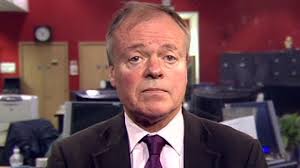Government Scraps Local Top Up for Supported Housing In Line With Joint Committee Report
Wednesday 01 November, 2017 Written by Simon Collyer
Following the welcome announcement last week that Government is dropping Local Housing Allowance rates from the funding mechanism for supported housing, the Committees have now received the full response from Government to their joint report.
The response shows that the Government has also acted on the Committee’s concerns that local authorities should not have to “top up” payment for supported housing, by introducing a new “sheltered rent” that means the cost of sheltered and extra care housing will be entirely covered by Housing Benefit or its replacement Universal Credit, in accordance with and actually going further than another of the committees’ central recommendations.
Given that the report cited concerns around the future viability of supported housing, it is important that the Government makes clear as soon as possible what its new proposals will mean for the actual levels of funding beyond 2020 and the future viability of the sector, which has experienced long term shortfalls. The report cited figures showing there are currently around 17,000 fewer supported housing units than needed, which is likely to double, to over 35,000 places, by 2020/21.
The Government response says:
As announced last week, the Government will not be applying Local Housing Rates rates to tenants in supported housing or the wider social rented sector. This was a clear recommendation in the joint Committees’ report, which said, “The LHA is an inappropriate starting point for a new funding mechanism for supported housing”.
For sheltered and extra care housing (approximately 71% of all supported housing), the Government will introduce a ‘Sheltered Rent’, which will keep see housing costs fully paid for by tenants’ Housing Benefit or Universal Credit. This is in line with the committees’ call for a “Supported Housing Allowance …sufficient to ensure supported housing tenants only require recourse to locally-administered top-up funding in exceptional circumstances” but goes even further, scrapping any local top up
However, to control costs in the sector there will be a cap on the amount paid to social landlords providing this type of housing. The new proposals make clear that the level of ‘sheltered rent’ will be regulated by the social housing regulator, with the cap level set as one outcome of the consultation published yesterday. Overall funding for the sector will therefore be partly determined by the level that ‘sheltered rent’ is capped at.
The Committee called on the Government to remove the local top ups and fund supported housing this way to “Reflect the actual cost of provision… incentivise investment in all regions equally… [and] not introduce uncertainty into the long-term housing arrangements of vulnerable people”, a system that would be “sophisticated enough to reflect the diversity of provision in the sector, recognising that costs vary substantially”. The Government response says that ‘sheltered rent’ will take into account any regional variations and reflect the variety of provision across the sector.
Other long-term supported housing (such as for those with physical impairment or learning difficulties) will also continue to be funded fully through the welfare system, with the Government consulting with the sector to develop arrangements to ensure costs are also controlled.
Again in line with the committees’ recommendation on short-term and transitional supported housing (including homeless people and those receiving support for drug and alcohol misuse) that “Government should consider a system of grants paid to local authorities so they are able to commission emergency accommodation in their areas. Local authorities should pay providers directly, so services are available when they are needed”, the Government proposes that 100% of this provision will be commissioned at the local authority level, funded locally through a ring-fenced grant, and underpinned by a new local planning and oversight regime. Funding will no longer be met through Housing Benefit or Universal Credit, removing these emergency supported housing costs from the welfare system altogether.
However, the Government did not support the committees’ recommendation that refuges for women and children should be funded through a national funding and planning mechanism, outside the restraints of differences in local authority provision.

Image: Frank Field MP
Rt Hon Frank Field MP, Chair of the Work and Pensions Committee, said: “The Government has gone even further than we recommended, scrapping any local authority top up for rent and housing costs in the supported housing sector, on top of the welcome announcement last week that they were scrapping the Local Housing Allowance as a basis for funding. As always however, the devil is in the detail. We need to know that all the necessary funding is in place. Likewise, costs must be controlled – taxpayers cannot fund whatever landlords in the sector demand. The new ‘sheltered rent’ cap must be set at a level that will allow investment in the sector to begin to reverse the steep shortfall in supported housing places.
“It is disappointing though that the Government refuses to address the postcode lottery that faces desperate women and children seeking refuge from domestic violence. It cannot be right that access to potentially life-saving shelter is determined by disparities in local authority funding and access rules across the UK. I hope they will reconsider.”

Image: Clive Betts MP, Chair of the Communities and Local Government Committee.
Clive Betts MP, Chair of the Communities and Local Government Committee, said: “We are pleased the Government has listened to the joint Committee by proposing a funding mechanism that reflects the actual costs of providing Supported Housing and reduces uncertainty for tenants. As we recommended in our Report, the Government is right to remove short-term supported housing from the welfare system, giving greater control and oversight of provision to local authorities. However, the Government must offer more clarity on proposed funding levels beyond 2020 to give the supported housing sector the long-term certainty they need.
ABC Note: The response was published as a Command Paper by the Government – pdf attached
Leave a comment
Make sure you enter all the required information, indicated by an asterisk (*). HTML code is not allowed.
Join
FREE
Here










